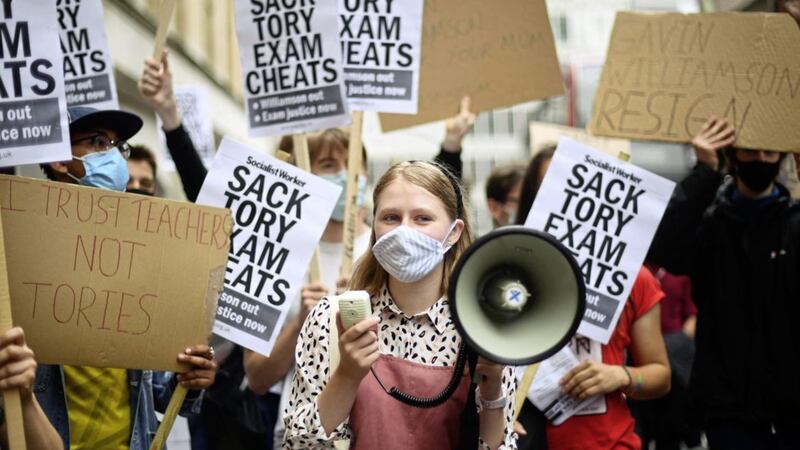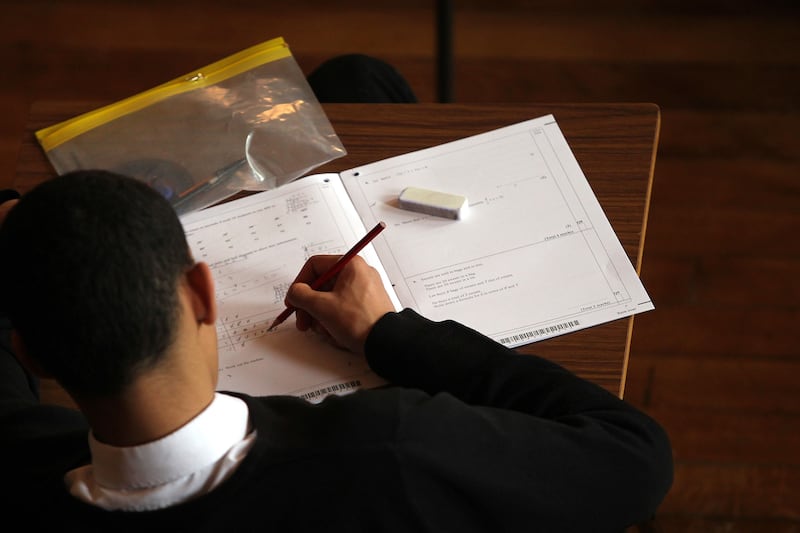WHEN people mobilise to challenge an injustice, it is the most powerful of human endeavours.
When those protesters come from all backgrounds, all classes, all races and religions and speak with one voice, well what can be more powerful than that?
When they manage to make those in the halls of power crumble with fear of the future repercussions of smiting such a united group of people, then I applaud each and every one of them.
And that is exactly what happened this week, as one by one, government education ministers from across the regions, buckled under pressure.
And who did they fear so that they made an almost unprecedented turnaround, a speedy admission of guilt, a swift resolution of this terrible injustice?
Not an invading army, not millionaire businesses or powerful lobby groups.
No, they buckled under pressure from 17 and 18 year old students.
They feared a generation of soon to be voters.
The AS and A level students who had their futures damaged by a flawed algorithm, that judged them by a formula and not as individuals.
That discriminated further against those in schools whose students have already been discriminated against by a society that undervalues them, not because of who they are but where they live.
Young people, many of whom started off life at a disadvantage not because of their actions but by a postcode lottery of birth.
Grammar school, state school, integrated, Catholic and Irish language sectors, those students stood shoulder to shoulder and demanded they be treated as equals.
They called into radio shows, they bombarded social media, they took to the streets.
They told their stories, they spoke of their future dreams and they defended their schools, their teachers and each other.
They showed what can be done and when Education Minster Peter Weir announced that he would allow pupils to use either teacher predicted grades or allocated ones they celebrated, and rightly so.
They have already been through so much, lockdown was disproportionally hard on many children and young people, and yet they accepted it with incredibly good grace.
Those warm spring months may have seemed never ending to us, but image how they felt to a teenager cut off from school, sports and friends.
For those who required additional help, for those with special educational requirements, wondering how they would ever catch up.
Those young people living rurally, cut away from all social contact for days, weeks and months on end.
The children living in cities, many with no gardens or a bedroom of their own.
Those economically disadvantaged with no wifi or limited access to devices needed for learning.
Teenagers whose parents lost their jobs, or were furloughed on already low pay, those living in abusive households with no escape.
The child carers, those for whom school was break from looking after sick parents or siblings.
They all gave up those last joyous days of school, the parties, the plays, the school trips, the leavers assembly, the tearful goodbyes, the hugs with friends and farewells to favourite teachers, those formative and memorable events.
All taken from them, nothing ahead but uncertainty, recession, limited prospects and a government using an algorithm to decide their future.
For most of us lockdown is something we will look back on as a small blip in an otherwise long and eventful life.
But if you've only started out in life those months must have seemed like years and yet they abided by the guidance, they adapted to a new way of living.
They deserved better than they got and they knew it and so they stood up and said 'enough'.
They've seen the power of their voices and I only hope this experience teaches them to continue to use that voice, loudly, uncompromising and always for the betterment of themselves and their peers.
I am so proud of this generation, the class of 2020 I salute you.
I'm confident after the last week that the future is safe in your hands.







